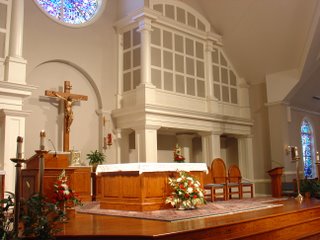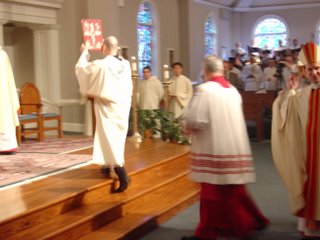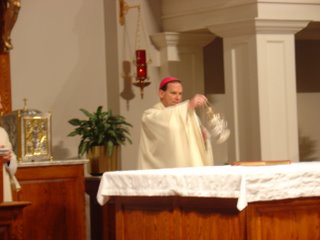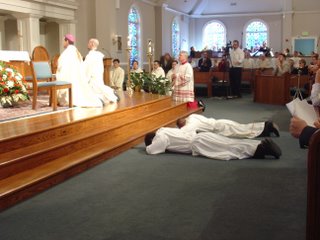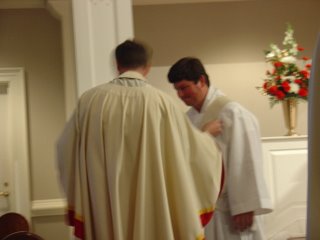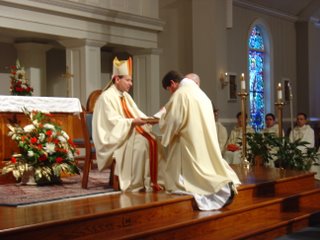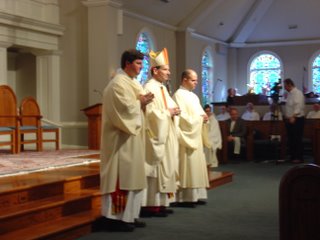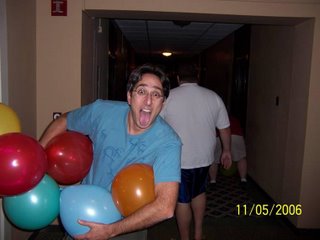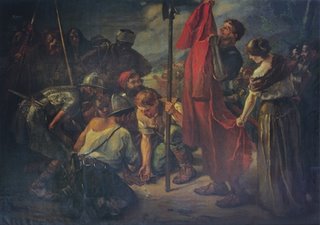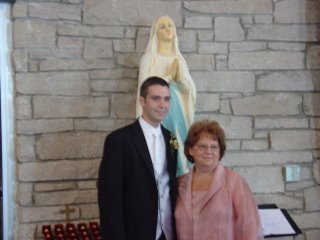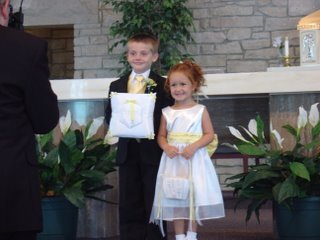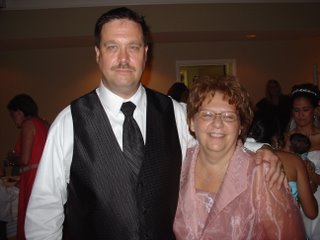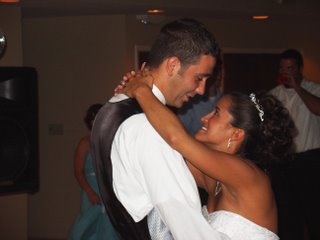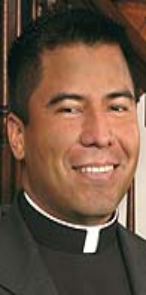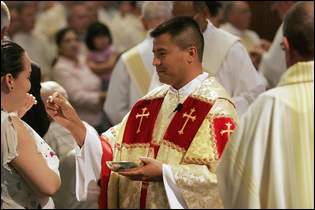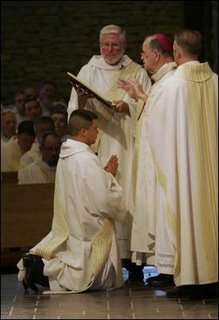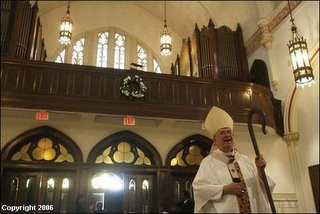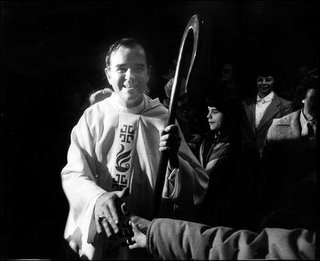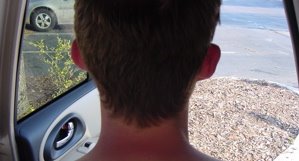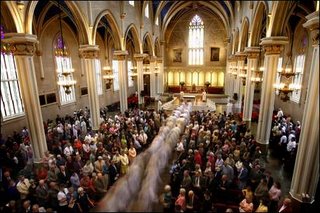Well, I have tons to post about and a camera full of pics from the summer: my younger brother's wedding, my thoughts on my summer assignment, etc.
I'm back to seminary... which is awesome... and I'm very impressed by the new guys (wow... I'm not a new guy anymore...)
Anyway, tomorrow starts the opening retreat for the community here at St. Mary's. It's gonna be a good one, the itinerary is below. I'll be in monk-mode till Thursday. Please pray for me that this retreat bears much fruit for a holy and productive First Theology year.
ST. MARY’S SEMINARY & UNIVERSITY
THE 2006 OPENING COMMUNITY RETREAT
August 29-August 31, 2006
“Deus Caritas Est: Priestly Formation in Charity”
Given by the Rector and Faculty
Retreat Schedule
(All conferences will be in the Main Chapel)
Tuesday, August 29
11:30 a.m. Eucharistic Liturgy: Mass of the Holy Spirit
Presider and Homilist: Father Robert Leavitt, S.S.
12:15 p.m. Lunch (Refectory)
2:00 p.m. Conference 1: Father Robert Leavitt, S.S. “God is Love and Life Together”
4:30 p.m. Evening Prayer, Conference 2: Father Michael Barre, S.S. “I Have Loved You with An Everlasting Love”
5:30 p.m. Dinner (Refectory)
7:30 p.m. Meditative Rosary on the Joyful Mysteries Led by Father Hy Nguyen, S.S.
Strict Silence Begins
Wednesday, August 30
Breakfast (Refectory—In Silence)
9:00 a.m. Morning Prayer, Conference 3: Father Gladstone Stevens, S.S. “The Love of God and Divine Wisdom”
11:30 a.m. Eucharist Presider: Father Stevens, S.S.
Adoration of the Blessed Sacrament until Evening Prayer
12:15 p.m. Lunch (Refectory – In Silence)
2:00 p.m. Extraordinary Confessors available for Sacrament of Reconciliation (Locations posted)
4:30 p.m. Evening Prayer, Conference 4: Father Corbin Eddy “Liturgy as the Sign of Love”
Benediction of the Blessed Sacrament
6:00 p.m. Dinner (Refectory—In Silence)
8:00 p.m. Taize Meditative Prayer Led by Fr. Tony Perez, S.S.
Strict Silence continues through the Night
Thursday, August 31
Breakfast in silence (Refectory)
9:00 a.m. Morning Prayer, Conference 5: Father Philip Keane, S.S. “Love as the Foundation of Moral Life”
11:30 a.m. Conference 6: Father David Couturier, OFM Cap. “God’s Love, Human Resistance, and Priestly Service”
Strict Silence Ends
12:15 p.m. Lunch (Refectory)
2:00 p.m. Conference 7: Father Robert Leavitt, S.S. “Love and the Paschal Mystery”
Quiet Time for Prayer and Reflection
4:00 p.m. Covenant Liturgy Presider and Homilist: Robert F. Leavitt, S.S.
5:00 p.m. Social (Laubacher Hall)
5:30 p.m. Dinner (Refectory)
Guidelines for Quiet Time for Prayer and Reflection
I. A serene and quiet atmosphere pervades the whole house during the retreat, allowing the Holy Spirit to work in each individual, and respecting the Spirit’s work in others.
II. Spiritual conversations and shared prayer with others in small groups may take place.
III. Meal times are the appropriate place for fraternal interactions.
IV. During the retreat seminarians should avoid the use of electronic or digital devices (TV, computers, phones, game systems). Soft music facilitating reflection should not disturb others.
V. During the retreat normal business activity and external communications should be kept to an absolute minimum.
Guidelines for Strict Silence
I. During strict silence, seminarians avoid all noise and distractions completely to allow for deeper prayer and reflection in silence.
II. During strict silence, seminarians avoid even spiritual conversations and shared prayer with others. Brief and urgent communication should be done discreetly.
III. During strict silence, meal times become an opportunity for reflection and deeper communion with God.
IV. During strict silence, seminarians completely avoid the use of electronic, digital, or sound devices.


